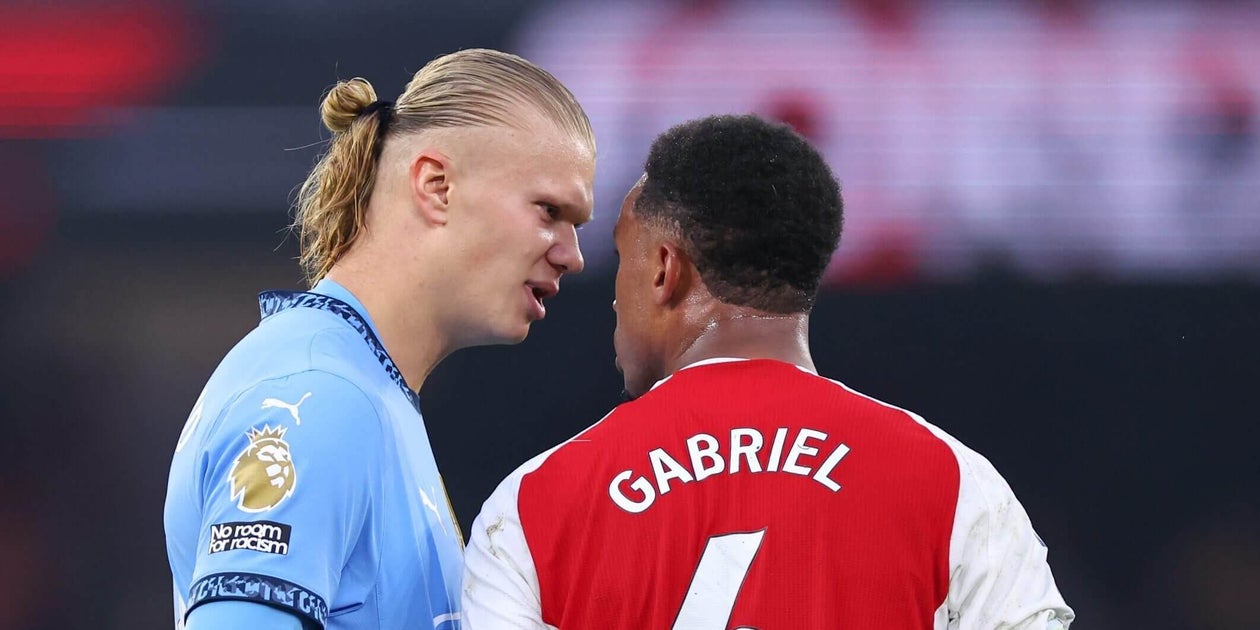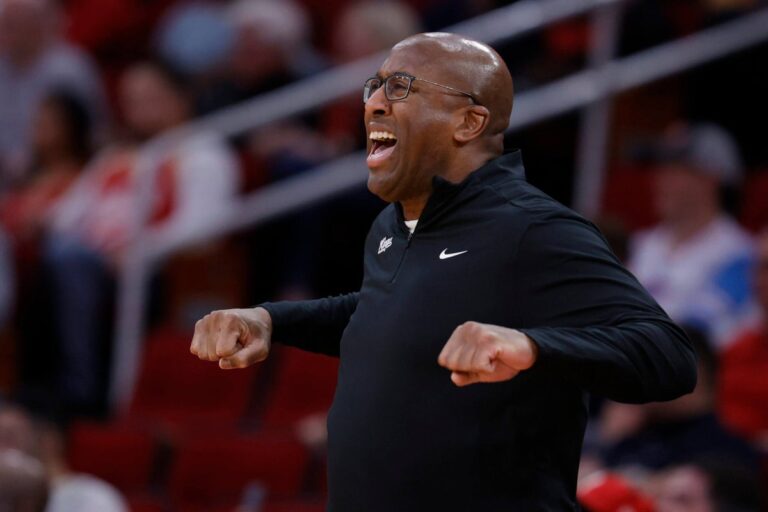Oleksandr Zinchenko had failed to read the room. Last summer, on vacation in the south of France, the Arsenal left-back had nowhere to run. Not in a metaphorical sense: he needed to find a pitch to maintain his fitness for a couple of hours a day before returning to Premier League duty.
Fortunately, he thought, he had an old friend who might be able to help. Zinchenko noticed on Instagram that Bernardo Silva, his former team-mate at Manchester City, was holidaying on the Riviera, too. Silva had spent a couple of seasons at Monaco. Assuming he would be able to point him in the direction of a place to train, Zinchenko dropped him a message.
The exchange, as Zinchenko relays in his autobiography, Believe, was good-natured. “For what?” Bernardo wrote back. “You’re going to try to win the Premier League again? Forget about it. Stay at home.” Zinchenko plays the incident for laughs. It is, though, indicative of the rivalry that has emerged between their respective teams that Bernardo does not appear to have helped.
The easiest historical parallel for the relationship between Manchester City and Arsenal — the one that has animated the last two Premier League seasons, and the one that will flicker again at the Emirates on Sunday — is perhaps the feud between Liverpool and Chelsea that burst into life two decades ago.
The two conflicts are similar in essence: old money against new, aristocracy against the arrivistes, establishment against the insurgent; the hostility is rooted not just in a mutual quest for honours but a fundamental disagreement about who has the right to regard themselves as part of the elite.
In texture, though, they are different. There was, of course, mutual antipathy between Jose Mourinho and Rafa Benitez, the managers of Chelsea and Liverpool at the height of their antagonism. At times, relations were frosty between their players, too: on England duty, Steven Gerrard and Jamie Carragher formed a separate faction to John Terry, Frank Lampard and Ashley Cole.
For the most part, though, it only manifested in outbursts of press conference sniping and the occasional sabotage of England’s forlorn attempts to win an international tournament. In that sense, the more apposite forerunner of Arsenal’s current conflict with Manchester City is the one that Arsene Wenger and his team enjoyed with Manchester United at the very start of this century.
There was, in that case, no simmering undercurrent: both Arsenal and United regard themselves, and would begrudgingly regard each other, as members of English football’s traditional triumvirate of powers.
The timbre of the feud, though, was the same. Their meetings were bad-tempered, fraught, freighted both with meaning and rancour. Relations not just between the clubs but the teams themselves were bitter, toxic. And, above all, things were petty. They traded barbs in public. They bristled in the tunnel, squabbled on the pitch, and threw pizza outside the dressing rooms. They shared, for a while, a mutual loathing too potent for anyone involved to conceal.
Until relatively recently, it would have been possible to feel that Arsenal were doing an awful lot of the heavy lifting in terms of willing a rivalry with City into existence.
Pep Guardiola’s team had, naturally, come to play the role of a final boss in the thinking of Mikel Arteta and his players: City were, after all, the team they would have to overhaul if they were to win a first Premier League title since the height of their discord with Manchester United. City were the yardstick by which Arsenal judged themselves.
When Arsenal were beaten 3-1 by City at the Emirates in February 2023, Arteta used it as a learning moment, proof that there were certain errors his team could not afford to make “at this level”. A few months later, when City beat Arsenal 4-1 at the Etihad, he urged his players to be “humble” enough to accept the better team had won.
It was no wonder, then, that Arsenal treated their victory on penalties in the Community Shield that summer as a significant milestone. Aaron Ramsdale described it as “a statement, a marker. That mental block is gone,” he said. “We’re ready to push on now.”
Beating Guardiola’s team in the league in October 2023, Arsenal’s first win against City in the Premier League for eight years, felt even more important. “Everyone knows how hard it is to play against them,” said Gabriel Jesus, channelling his inner Independence Day-era Randy Quaid. “But it is not impossible to beat them.”
Just as significant, though, was the aftermath of that game. As the players left the field after Arsenal’s 1-0 win, the club’s set-piece coach Nicolas Jover, a former City employee, attempted to shake hands with Kyle Walker. Walker took exception, reportedly because he remembered that Jover had refused to shake hands with City’s players after Arsenal’s defeats earlier in the year. Erling Haaland became involved, too, prompting a mildly unseemly fracas. The rivalry, it turned out, did not only run one way. City might have got inside Arsenal’s heads. But Arsenal were in City’s, too.
In the year that followed, that became increasingly clear.
Source link




